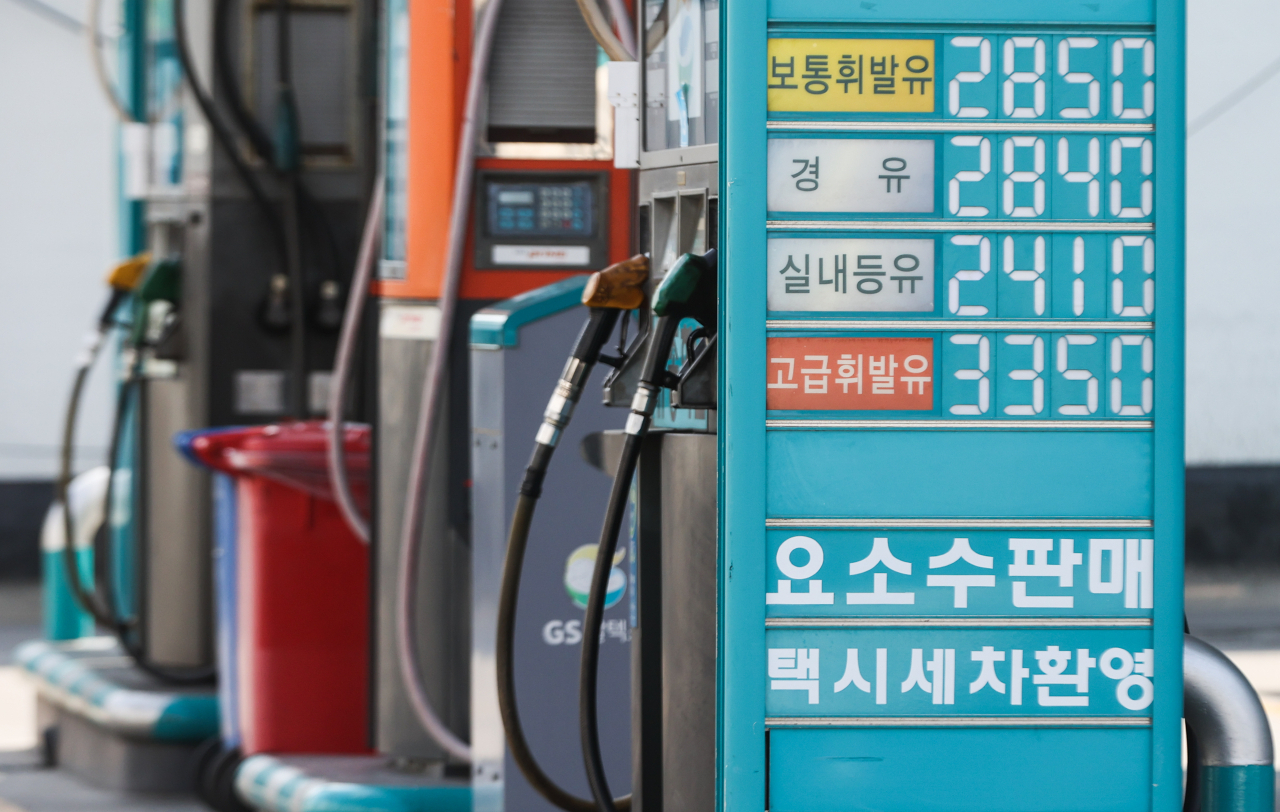 |
This photo, taken Sunday, shows gas prices at a filling station in Seoul. (Yonhap) |
South Korea's consumer prices are estimated to have grown at a faster pace in March as Russia's invasion of Ukraine has driven up oil prices, a senior government official said Friday.
Inflationary pressure is likely to remain high for the time being as external economic uncertainty has heightened, according to First Vice Finance Minister Lee Eog-weon.
"Expectations are growing that inflation growth will pick up in March, led by a jump in prices of petroleum products," Lee said at a government meeting on inflation.
South Korea's consumer prices grew 3.7 percent on-year in February amid soaring energy costs. Inflation rose more than 3 percent for the fifth straight month, well above the central bank's inflation target of 2 percent.
Inflation is projected to have jumped an average of 3.88 percent on-year in March, according to a poll on five securities firms by Yonhap Informax, the financial news arm of Yonhap News Agency.
The government is considering whether to cut fuel taxes by a record 30 percent from the current 20 percent in a bid to tame inflation.
Early this month, the country decided to extend a 20 percent fuel tax cut by three months until end-July. The tax reduction was set to expire at end-April.
The finance ministry plans to decide whether to further lower fuel taxes Tuesday after taking into account oil price movements and March inflation data.
Dubai crude, South Korea's benchmark, soared to $107.71 per barrel Thursday, up from $77.12 at the end of last year. It hit a yearly high of $127.86 per barrel on March 9. South Korea depends mainly on imports for its energy needs. (Yonhap)



![[Today’s K-pop] Blackpink’s Jennie, Lisa invited to Coachella as solo acts](http://res.heraldm.com/phpwas/restmb_idxmake.php?idx=644&simg=/content/image/2024/11/21/20241121050099_0.jpg)



